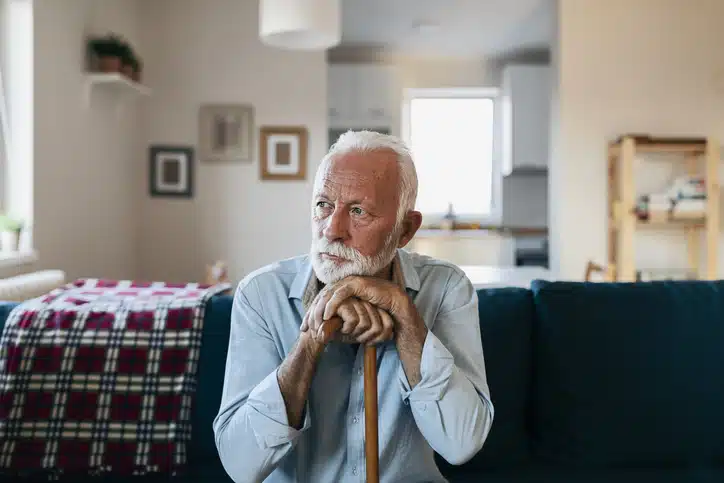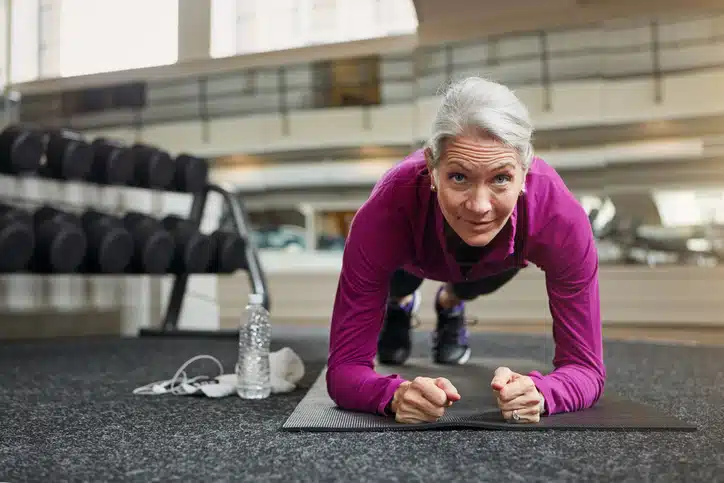We Are Living Longer Than Ever. But Are We Living Better?

If you have reached your 50s, you’re probably at that age where you’re wondering how many years you have ahead.
Of course, it’s not just all about the length of time we live, it’s about the quality of our lives.
It’s no secret that breakthroughs in medical science are ensuring that people are living longer than ever, but what does that mean for people’s quality of life?
Does living a longer life always mean living a happier, healthier life?
According to the experts, this might not be the case.
If you’re reading this article, you’re likely to be 50 or over, I’m guessing. So we’re at that age when this subject should be close to our hearts.
In fact, if you’re not taking steps now to age healthfully, you may not benefit from all the perks that come with ageing into your 80s and beyond.
Living for a Longer Life
The World Health Organisation looked into some of the factors that will impact people as they age, with the hopes of educating people to take action now to improve their health in the future.
Not only that, but they also wanted to make sure that governments became aware of what support they needed to provide to their citizens in order to make this happen.
This became the World Report on Ageing and Health, highlighting that while global populations live longer, they aren’t exactly living healthier.
This often means that while people see older age; they also have to deal with chronic illnesses that make happiness and independence more difficult to achieve.

How life expectancy has increased throughout the decades
If you look back at life expectancy over the past few hundred years, it’s easy to see how far humanity has come.
From 15% infant death rates in the mid-1800’s to below 0.4% in recent years, people are living longer than ever.
Part of what aided this rise in healthy, happy babies, were governmental policies that improved things such as sanitation and immunisation rates.
As people began to age, however, the focus turned to those conditions that targeted ageing, including heart disease, cancer, and the like.
If you were to ask someone in the 1800’s about those most vulnerable to life-threatening conditions, they’d probably point to the children – but now we look to the older populations.
When people think about ageing, they picture sunset strolls with grandchildren at their heels or trips abroad with friends.

What no one wants to picture is having to deal with chronic, potentially debilitating conditions.
Anyone wanting to enjoy their silver and golden years needs to ensure that they know what foundations to lay to get there in the best possible health.
Pre and Post Pandemic Life Expectancy Projections
No one can ignore the impact of the pandemic on the global population, and this extends to life expectancy projections.
Before the pandemic, males born in the UK in 2018 could expect to live to just under 88 years of age and females to just over 90.
When it came to those who weren’t quite able to make it to these projections in 2018, conditions targeting the circulatory system seemed to be the most impactful for those aged 55 and above.
While experts know that Covid-19 was the leading cause of death for those living in England, what we don’t know is how this is going to impact the life expectancy of the global population going ahead.
This is partly because of the lack of medical treatment people received for potentially chronic and life-threatening conditions, such as cancer, during the pandemic, the impact of which the world is likely going to be managing for a long time.
Living Today for a Longer Life
While there is always going to be some element of uncertainty when it comes to the ageing process, all experts agree on one thing – that the focus should not solely be on increasing the life expectancy of the population; but on ensuring people’s lives are as free of potentially disabling conditions as possible.
To achieve this, we need to be caring for our health and well-being in the present.
If you’re looking to secure your path to a healthy, independent old age, here’s a few things you can do now:
- Start Walking To improve your overall fitness
Movement is essential to a healthy body. No matter how you choose to do it, make sure you move as much as you can throughout the day.
If you can run, run. If you can walk, walk. While the recommended daily target is 10,000 steps, keep in mind that 100 steps is better than nothing.
- Drink Lots of Water To stay hydrated
Water is worth its weight in gold when it comes to protecting, cleaning and maintaining every aspect of the body, from the organs to the muscles.
Increasing your water intake will have you feeling more energetic, healthier and happier.
- Variety is the Spice of Life
Eat a wide variety of healthy foods. It can be easy to get stuck in a rut when it comes to meal planning, but variety ensures a healthy digestive system.
As all over 50’s can attest, there’s nothing like regular, healthy bowls to put a spring in your step.
- Focus on the Protein – it’s essential for muscle growth
When you’re in your 50’s, you’re likely going to notice a significant drop in your muscle mass compared to your 20’s.
Nothing is surprising about this – in fact, it’s just a part of growing older, but you can do your part to ensure you’re fighting back.
By eating protein on a regular basis (such as beans, nuts and legumes, along with sensible amounts of poultry and fish), you can contribute to your body’s maintenance of healthy muscle and bones.
This will hopefully prevent those fractures and breaks that can leave many over 50’s with chronic pain for decades to come.
- Get Flexible
A flexible body is less prone to falls and chronic pain, so if you’re able, start off with something like 15 minutes of stretching each day. You’ll be amazed by what a difference it can make.
- Make Friends
Lastly, social connections cannot be overstated when it comes to staying well and happy in your golden years.
Experts have highlighted that having those close connections in older age can actual slow down cognitive decline.
Ageing healthfully isn’t a passive activity – it is one that you need to work on well before you start planning your retirement activities.
After all, if you only get one body in this life, you’ll want to make sure you treat it as such.





